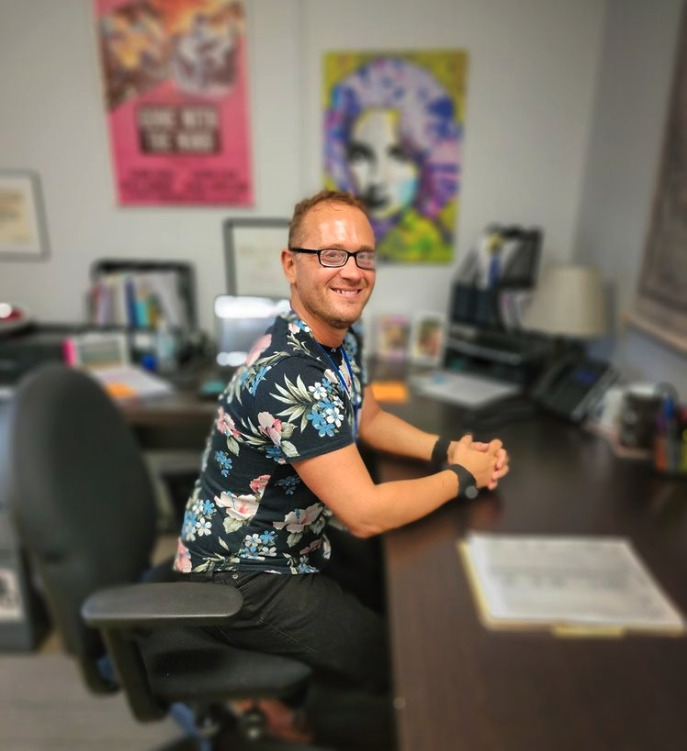LGBTQIA+ and Substance Abuse: The Numbers
September 1, 2021 - Substance Abuse
Medically Reviewed by David Knisely


Written By
DreamLife RecoveryBecause of homophobia, rejection from families, a history of trauma, and other such matters, LGBTQIA+ people are more prone to use drugs and alcohol and abuse these substances. They also face several obstacles that might make it difficult for them to enter rehab, and they frequently have specific needs that they must address to recover. However, according to research, LGBTQIA+ people fare better in treatment and addiction recovery when they are a part of an LGBTQIA+specific or LGBTQIA+friendly program.
LGBTQIA+ and Substance Abuse: Rates
It is all too common for vulnerable populations, such as the LGBTQIA+ community, to misuse prescription drugs and grow addicted to opioids. According to a study, in 2015 alone, 18.9 million people, or 7.1 percent of the U.S. population, abused prescription psychotherapeutic medication in the previous year. As a result, prescription drug abuse has become an epidemic in the U.S., with marginalized communities being particularly vulnerable.
Even though opioids are some of the most commonly abused drugs, numerous other narcotics are also misused and have dangerous outcomes for minority groups, including the LGBTQIA+ community. For example, adults belonging to a ‘sexual minority’ were more than twice as likely as heterosexual adults to have used an illegal substance in the previous year, according to the 2015 National Survey on Drug Use and Health. In addition, compared to 4.5 percent of heterosexual adults, over 10 percent of sexual minority adults misused prescription pain relievers.
According to the Centers for Disease Control and Prevention (CDCP), cigarette smoking among LGBTQIA+ people in the United States is also higher than among heterosexual or straight people, and so is alcohol abuse. In addition, the study found that LGBTQIA+ individuals are more prone to not refrain from drug and alcohol usage and to continue heavy drinking into later life. Hard drug use can also raise a person’s risk of contracting HIV and other types of STDs. Among those, methamphetamine is the most dangerous drug in everyday use, causing a slew of health issues for users and contributing to the United States’ expanding drug crisis.
The Reason Behind the LGBTQIA+ Population Substance Abuse
Addiction affects an estimated 30 percent of the LGBTQIA+ population, and it is two to four times more prevalent among this minority than in the general population. Several factors contribute to this community’s high rates of substance abuse, including:
- Homophobia and heterosexism. The term ‘homophobia’ applies to LGBTQIA+ people’s social, political, and psychological oppression. LGBTQIA+ people may face discrimination in marriage, employment, housing, and other civil rights due to deeply ingrained homophobic and heterosexist views in the United States, leading to anxiety and depression. Studies say that lesbian, gay, and bisexual youth are four times more inclined than straight youth to attempt suicide, and 40 percent of transgender adults have attempted suicide.
- Rejection from family members. If a gay person comes out and the family cannot accept them, the individual is more prone to substance abuse disorder. According to studies, people who experienced moderate rejection levels were 1.5 times more inclined to abuse substances than people who experienced little or no rejection. If young people encounter high rejection levels, they are 3.5 times more likely to misuse illegal substances.
- Trauma. Trauma disproportionately affects members of the LGBTQIA+ community, with the most common types among this population being sexual assault, intimate partner violence, and hate violence. Trauma can have a significant influence on behavioral health. Up to two-thirds of adults in addiction treatment have been victims of child abuse and neglect, and 70 percent of young people in rehab have been subject to trauma.
- Gay bars. Gay nightclubs are the hub of social activity for many members of the LGBTQIA+ community. They are a safe place where most individuals can be themselves and not feel people’s judgment outside their community. LGBTQIA+ members may also go to raves, circuit parties, and pride parades, where heavy drinking and drug use is common and expected – an aspect also contributing to high rates of substance abuse.
Other factors that may increase an LGBTQIA+ person’s likelihood of using substances include sexual shame and guilt and mental health disorders such as depression, anxiety, and post-traumatic stress disorder (PTSD).
Signs of Substance Abuse and Addiction
Addiction is defined by compulsive behavior and uncontrollable drug abuse despite adverse health and social results. Addiction symptoms differ on the individual, the drug of choice, and their mental health status. However, some general signs and symptoms include:
- Secretive behavior
- Mood swings
- Bloodshot eyes
- Weight loss or weight gain
- Financial problems
- Poor performance at work or school
- Neglecting their physical appearance
- Smells on breath, body, or clothing
- Change in friends
- Drug use despite relationship issues
- Tremors, slurred speech, or lack of coordination
- Change in sleep habits or appetite
- Legal issues
Addiction is an awful condition. If left untreated, it can lead to various negative social and health consequences, such as strained relationships, financial issues, accidents, overdose, and death. Our professional team can assist you in treating your addiction and mental health problems by helping you gain back your self-esteem, self-assurance, and confidence so you can live your life honoring your uniqueness.
Addiction and Mental Health Treatment with DreamLife in Donegal, PA
It can be challenging to be yourself in a world that may not accept you. However, you are not alone. We hear your voice, and we see your face. If you are struggling with substance abuse or an alcohol use disorder, know that help is available in our substance abuse treatment program at DreamLife Recovery. Besides offering substance detox, residential treatments, and aftercare plans, the LGBTQIA+ Program can also help you come out, accept yourself, regain your self-esteem, and sober up so you can live your life enjoying your individuality.







